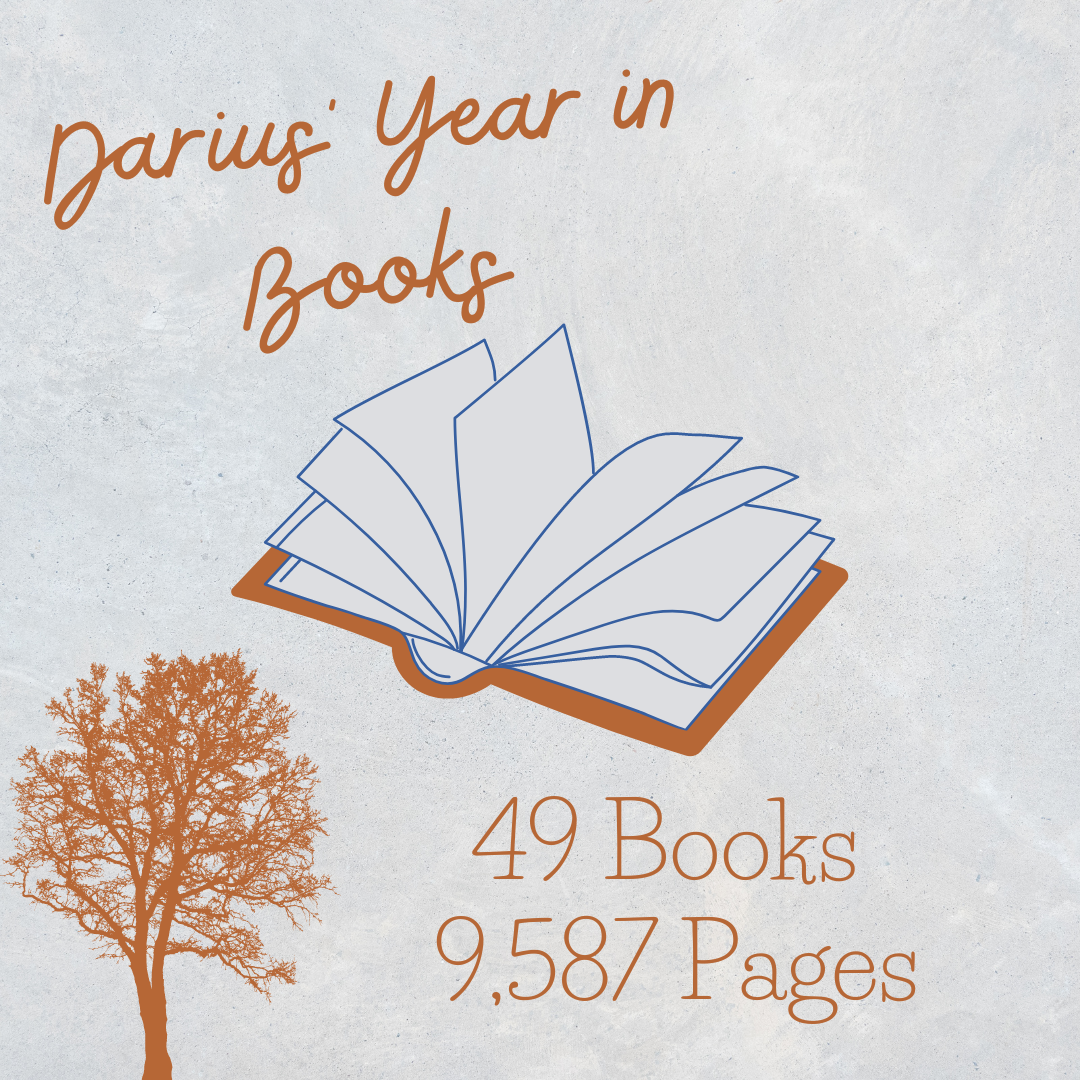The Library’s Social Media Team loves to read, so in this series of blog posts we’re bringing you some of our favorite books we have read in 2022. (You can check out the first installation of this series here.) Several of us (myself included) did a GoodReads challenge—feel free to connect with me there, or join a GoodReads Challenge of your own in 2023!
In 2022 I read 49 books and 9,587 pages. My shortest book was The Hill We Climb by Amanda Gorman, which was 32 pages. The longest book I read was From a Certain Point of View: The Empire Strikes Back edited by Elizabeth Schaefer, which was 561 pages. You can see all the books I read on my GoodReads page. My goal for 2022 was 30 books; in 2023 I’m upping it 45!
In no particular order, a few books I read in 2022 that stood out to me include…
Rembrandt is in the Wind by Russ Ramsey: Through a series of art history essays, pastor Russ Ramsey masterfully weaves extraordinarily compelling stories of the human experience, artistic expression, and biblical truth. There’s something for everyone in this book! I had heard a couple of Ramsey’s talks on The Hutchmoot Podcast and they were brilliant, so when I found out he was writing a book I knew I’d have to pick it up. I was not disappointed. Find some more of my thoughts about Rembrandt is in the Wind here.
Cold Skin by Steven Herrick: Cold skin is a verse novel murder mystery set in rural Australia shortly after World War I. The story is told from the perspectives of several characters living in a coal mining town, and each narrator is masterfully characterized. Prior to reading this, the only verse novel I had read was The Crossover by Kwame Alexander, and I think I will have to read more. The medium seems to combine the expressiveness of short poetry with the ability to tell a longer story in a way that can be very moving. I read Cold Skin in only two sittings, if I recall correctly. Find some more of my thoughts about Cold Skin here.
Gentle and Lowly by Dane Ortlund: An extended contemplation on what it means for Jesus Christ to be “gentle and lowly in heart” as He described Himself in Matthew 11. Ortlund pulls from many Puritan writers to present a very helpful and encouraging picture of Christ’s heart for sinners. The book is not long, but even though it could be a pretty quick read I would recommend a slower pace to allow the reader time to contemplate what they’ve read. The short chapters could even be read as daily devotionals.
Pilgrim at Tinker Creek by Annie Dillard: I got this book for Christmas 2020 and finally got around to reading it at the beginning of 2022. Dillard’s prose is magnificent, and her contemplations on things she observes are extremely thought-provoking. I am already itching to read it again. Find some more of my thoughts about Pilgrim at Tinker Creek here.
Black Hole Survival Guide by Janna Levin: A very quick—but mind-bending—read, Black Hole Survival Guide is one of the best bits of scientific communication I read this past year. Levin’s writing is witty and clear, and the accompanying artwork by Lia Halloran is both helpful and visually appealing. This book helped me understand some aspects of quantum physics and relativity that had previously caused me quite a bit of confusion. Find some more of my thoughts about Black Hole Survival Guide here.
Happy Reading!
Darius Mullin’s reviews reflect his personal opinions and not necessarily those of the library or university.


